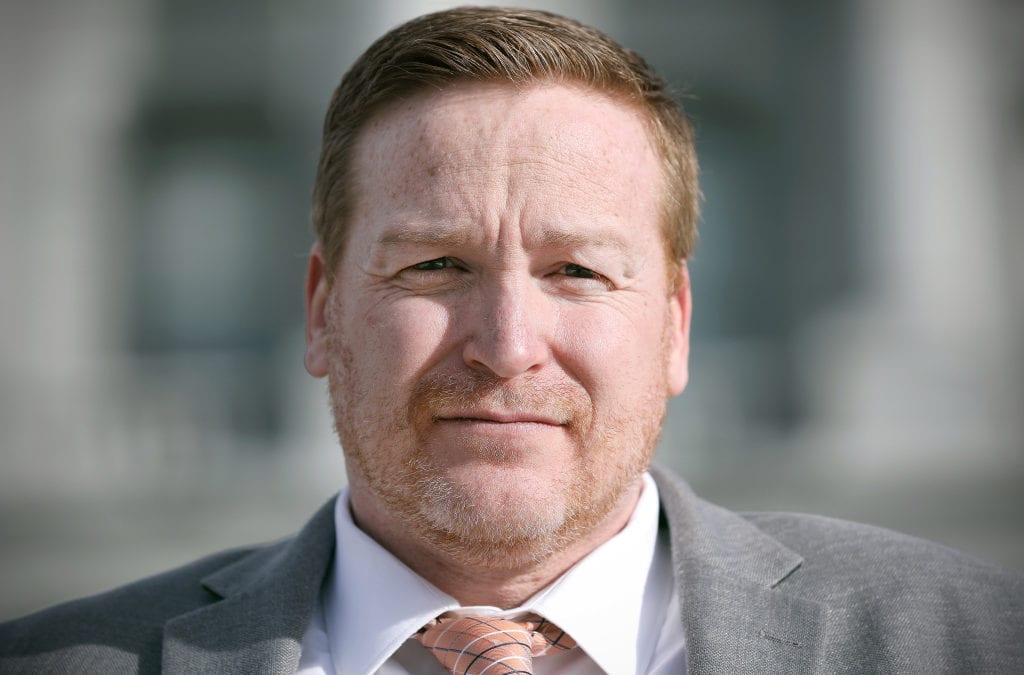Some words fail us, and for Robert Werthwein, “depression” is one of them.
The 41-year-old director of Colorado’s Behavioral Health Office prefers to say “everything turned to complete (expletive)” when his identical twin, Ryan, died of a brain tumor a week before their 15th birthdays.
“It may sound like an oxymoron to say I was numb, yet overwhelmed with pain at the same time, but that’s how I lived for 11 or 12 years.”
Throughout that time, Werthwein says every disappointment or abandonment — be it a bad grade or a break-up — destroyed him. He was not good enough, wasn’t doing enough with his life or capable of being happy, he’d tell himself. He started chugging cough syrup, and then whatever he could find in his parents’ liquor cabinet. He kept drinking to make it through college and a PhD program in child psychology. He would see fellow students smiling and laughing with each other, but figured they must have been faking it or unaware that the world was a “horrible, miserable place.”
Werthwein remembers the feeling of dread crawling under his skin. He would stare at his arms, imagining it worming through his veins. He’d try scratching it away, but it didn’t stop, keeping him awake for days on end until he either slept or hallucinated that he was sleeping, shadows appearing somewhere between the reality and unreality of his bedroom.
“At the time, in high school, I believed those shapes were coming to help me die. I remember feeling like ‘OK, I give up. I’m done.’”
He also remembers sitting on his bed as a teenager holding a Sharpie in one hand and a knife in the other, marking the spot where he would stab himself in the chest. He spent hours talking himself into it, then out of it whenever his mother’s footsteps reminded him she could not bear losing another son. And so for many years, well into his mid-20s, he daydreamed about more acceptable, even heroic ways to die: Too much smoke inhalation from rescuing someone from a fire, for example, or stepping in front of a sniper’s bullet.
Soon after his brother died, his mother took him to a psychiatrist whom Werthwein nearly punched for suggesting the family was remembering his brother Ryan as more saintly than he really was. Werthwein walked out on that doctor and would walk out on others through the years, convinced that he deserved to suffer.
It wasn’t until Werthwein was 26, well into the therapy required in his PhD program, that he started learning to cope with the illness that runs in his family. His epiphany, as he calls it, didn’t come with a burst of happiness. Rather, it came with a daily dose of an antidepressant, consistent, twice-a-week therapy sessions and acceptance that he is genetically coded with an illness that can be managed, if not cured.
“I remember feeling (terrible) one morning and deciding not to put a value statement on it or tell myself I was bad or not smart or strong enough to overcome it on my own. I just accepted that I was going to feel it that day, though not necessarily the next day or next year, and not let it overcome me,” he says. “That was life-changing. That’s when I started getting out of thoughts I was going to die.”
It has been three years since Werthwein was appointed Colorado’s behavioral health chief, responsible for overseeing the state’s two inpatient hospitals and dozens of community mental health and substance use programs. He can see — both in the state’s data and on people’s faces — that COVID has put Coloradans on edge more than ever. The responsibility can feel overwhelming and depressive thoughts creep in some days more than others. But his job gives him purpose, and that purpose fuels him, he says, and he is “unwilling to be a failure.”
“This is my life’s work.”
Werthwein has been especially struck by the number of people, especially young men, who have confided in him lately that they’ve been concealing COVID-related depression for fear that colleagues, friends or relatives will judge them as weak.
“This whole thing about people thinking they need to pull themselves up by their own bootstraps, this reluctance to come forward (and) ask for help, it’s asinine,” he says. “This stigma needs to stop.”
This story is part of the ongoing series On Edge, intended to foster conversation about mental health in Colorado. It is brought to you by COLab, the Colorado News Collaborative. Reach Susan Greene at susan@colabnews.co
This content was originally published here.

